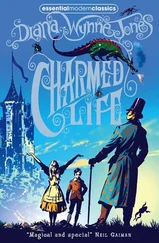“No,” he said again, “we will not have to leave,” and, watching the looks of relief that passed over his wife’s and his daughter’s faces, he knew he had made the right decision.
CHAPTER 24. The Road to Independence
FOR REVOLUTIONARY WAR DAYS, SARALA HAD SELECTED FOR HERSELF a red, white, and blue sweater, its front decorated with an image of a group of pigs sewing an American flag.
She had been surprised when Abhijat suggested that he join her for the event — he’d lived in Nicolet for over a decade and hadn’t once visited Heritage Village.
As they walked together through the grounds, she turned now and then to point something out to him. Here were all the things she loved about Heritage Village — the blacksmith’s shop, exhibits on colonial life in America, the costumed villagers — but now the grounds were full of elaborately costumed Revolutionary War reenactors from all over the country, regiments and camp followers, Redcoats who imagined they might quash this young republic.
The weekend’s reenactors had set up campsites under the canopies of trees that spotted the grounds — canvas tents arranged around campfires, and from the part of the green that functioned as the day’s battlefield came the sound of cannon blast, the sharp crack of muskets being fired.
Sarala thought back to the times she had brought Meena here as a child, how Meena had loved the smoke and racket of the blacksmith’s shop, how this place had performed for Sarala the America she’d imagined.
Their first stop, she decided, leading Abhijat to it, would be the early frontier log house, surrounded by its split-rail fence.
A junior reenactor Sarala recognized as a classmate of Meena’s was leading another group through the cabin when they arrived. It consisted of a single room — kitchen, dining room, and bedroom all at once — but the group’s attention was on the ladder in the corner that reached up to a loft. “Pioneer families built the loft for two reasons,” Meena’s classmate, in his simple frontier costume, explained. “In the winter, heat rises, so that was the warmest place in the house to sleep. Also, you’ll notice that there are no doors here — just flaps of animal hide. Well, if you were cooking something that smelled good, or your house looked toasty and warm, it wasn’t uncommon for a wild animal to wander in. And when that happened, the whole family could scramble up to the loft and pull the ladder up after them. Then they’d just wait until it wandered back out again.”
“Fascinating,” Abhijat said, smiling. “What kind of animal?”
Sarala, surprised by his interest, turned to observe her husband.
“Oh, a raccoon maybe, or a bear,” the student answered.
Sarala had not expected Abhijat’s delight at the house’s plank floors, the large stone fireplace. In one corner of the single room sat a wooden bed covered with a rough wool bedspread, and he pointed out to her a small, worn doll made of corncobs in a basket at the foot of the bed. Outside, he was intrigued by the children trying their hand at pioneer chores, grinding dry corn into meal using a wooden mortar and hollowed-out log as a pestle, or carrying buckets of water hung on a yoke they wore across their backs. It seemed to Sarala like an entirely new Abhijat who accompanied her through Heritage Village.
They made their way through the church, the tavern, the sawmill, the farm laborer’s cottage, the tiny post office and mercantile, the smokehouse, the doctor’s home office, and the brick farmhouse with its stoneware jugs and quilts, its barn full of farm tools. They looked through display cases with exhibits on local history, full of tea sets and dolls donated by elderly residents, memorabilia from businesses that had once existed in Nicolet. In one, an old photograph of a team of oxen pulling a wagonload of timber through town; in another, a city ordinance prohibiting pigs from running loose within the town limits. They made their way through the gift shop, stocked with souvenir tea sets and crockery, child-sized coonskin caps and bonnets, slates, magnets, wooden nickels, field guides to Illinois trees and wildflowers, postcards, and an old cigar store Indian whose display sign indicated that it was on “indefinite loan” to Heritage Village.
Revolutionary War Days was always Nicolet’s biggest annual event, but this year it had drawn an even larger crowd than usual. During the festival, Heritage Village would be unveiling its newest building — a replica of the Custom House, site of the Boston Massacre. Mayor Callahan was scheduled to give a dedication speech followed by patriotic music by the Nicolet Community Band.
Sarala led Abhijat along the paths, following the hand-painted wooden signs. “We should see Meena and Lily give their tour of the mansion,” she suggested.
The mansion stood a bit off from the rest of the village on a small swell of land, which, against the surrounding flat prairie passed for a hill. It was a tall, two-story home of dark red brick, its imposing entrance at the top of a steep limestone stairway.
Abhijat and Sarala joined a group making their way up the stairway to the front door, where they were met by Meena, in costume. She grinned at her parents. “Welcome to the mansion,” she said, showing the group into the house’s entrance hall. Abhijat was struck by how grown up Meena looked in her long dress, her hair pinned up.
Meena led the group through the dark foyer into the parlor, where she began to tell them about the house and the family who had once lived there, Nicolet’s own founding family.
Abhijat was used to being proud of his daughter, but he felt a new kind of delight descend upon him as he watched Meena, who had not only memorized an impressive number of facts for the tour, but was also, Abhijat noted, skilled at speaking to this group of strangers, at animating her recitation with a quick smile, kneeling down to listen to the question of one of the small children. Abhijat felt like he had, for a moment, caught a fleeting glimpse of the adult Meena.
She led them through the dining room, hung with its ornate chandelier and bright wallpaper, and into the kitchen, where she explained the rigid but invisible class threshold that existed at the doorway between kitchen and dining room. Outside, she pointed out the carriage house, the stable, and the kitchen garden arranged across from the root cellar, where the family’s cook had stored potatoes, turnips, and apples through the winter. From here, she led the group back to the stairs and handed them off to Lily for her tour through the bedrooms, the upstairs parlor, and the dark upstairs hall.
Lily did not have that same easy way with the crowd, Abhijat noted, though he took no pleasure in the realization. She recited the details of the house’s second floor as though eager to have them out of her, closing her eyes a little as she spoke, as though willing her audience out of her sight.
In the doorway of a bedroom, one of the mothers in the group pointed to the bed warmer, which looked to Abhijat like a long-handled skillet. “You put that in your bed,” the mother explained to her children, “while you were sleeping to keep you warm.”
“Actually…” Lily, overhearing this from across the hall, turned to face the mother. “That’s not correct. It’s not like a hot-water bottle,” she continued. “It was filled with red-hot coals. If you left it in your bed all night, you’d burn your feet off. You ran it over the sheets before bed.”
The mother looked at Lily, halfway taken aback, halfway interested — she seemed unable to decide. “Well, thank you, young lady,” she said. Then she gathered her children and herded them down the hall toward the next room.

Читать дальше













